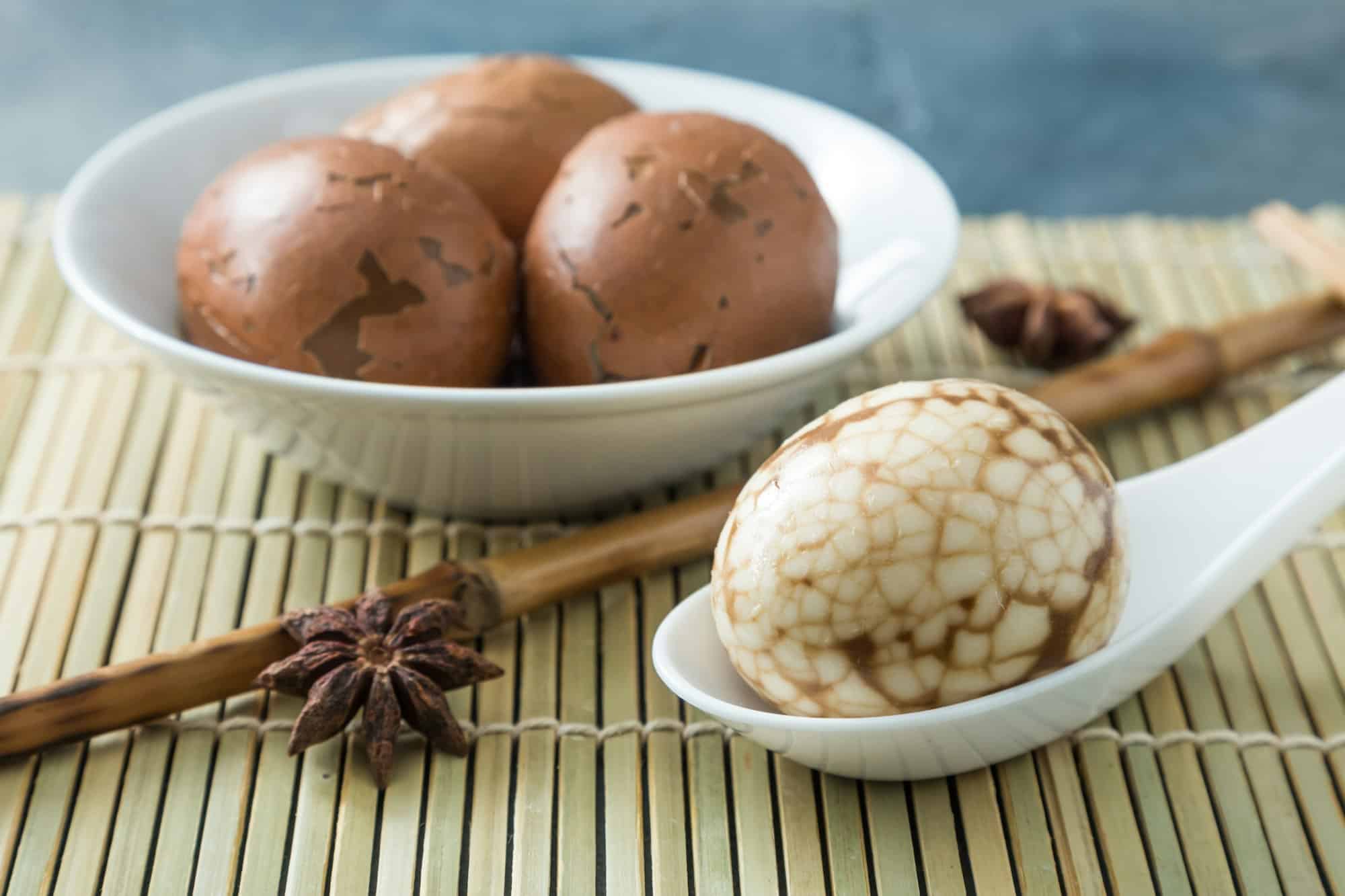How to Make a Traditional Chinese Tea Egg with a Marbled Pattern?

Chinese cuisine is known for its variety, rich flavors, and exquisite presentations. Tea eggs, a popular Chinese street-food snack, are a true testament to this culinary heritage. Traditionally enjoyed during the Lunar New Year and other festivities, these eggs are delicately marbled and soaked in a flavorful tea marinade that imparts a unique taste.
In this guide, we will walk you through the steps of making your own Chinese tea eggs at home. This recipe brings together the robust flavors of tea, soy sauce, and other Chinese spices to create a delicious snack that’s not only flavorful but also visually appealing.
Additional reading : What’s the Key to a Perfectly Moist Lemon Poppy Seed Cake?
Choosing the Right Ingredients
The first step to making your traditional Chinese tea egg is to choose the right ingredients. This dish requires simple, easily accessible ingredients, each contributing significantly to the final flavor profile.
Eggs are the star ingredient in this recipe. You would need fresh, high-quality eggs as they will best absorb the flavors of the marinade.
Have you seen this : How to Prepare a Classic French Onion Soup with a Cheese Crouton?
The marinade is the heart of this dish, providing the distinctive flavor of Chinese tea eggs. The primary ingredient for the marinade is black tea. You can use any type of black tea but Chinese black tea like Keemun or Lapsang Souchong is usually preferred for its strong, smoky flavor.
Soy sauce is another crucial component in the marinade. It imparts a savory richness to the eggs and gives them a beautiful color.
Other ingredients for the marinade include spices like star anise, cinnamon, and Sichuan peppercorns. These spices lend a warm, aromatic depth to the eggs.
Preparing the Eggs
The method of preparing the eggs is pivotal to achieving the beautiful marbled pattern. Initially, the eggs are boiled in water for about 10-12 minutes to ensure they are hard-boiled.
Once the eggs are boiled, let them cool for a few minutes, then lightly crack their shells with the back of a spoon. This step is crucial as it allows the marinade to seep into the egg, creating the marbling effect while infusing the eggs with flavor.
Remember to crack the shells gently and evenly, without peeling them off. The network of cracks will serve as the canvas for your marbled masterpiece.
Preparing the Marinade
To prepare the marinade, combine water, black tea, soy sauce, and your spices in a pot. Bring this mixture to a boil on medium heat, then lower the heat and let it simmer for about 15-20 minutes to allow the flavors to meld together.
The key to a flavorful marinade is giving it ample time to simmer. This process enhances the complexity of flavors, ensuring your eggs soak up the rich, aromatic liquid.
This marinade acts as both a cooking liquid and a brine, intensifying the flavor of the eggs while giving them a beautiful brown color.
Marinating the Eggs
After the marinade has simmered, it’s time to add the cracked eggs. Ensure the eggs are fully immersed in the marinade. If needed, add more water or a small plate to keep the eggs submerged.
Now comes the crucial part – letting the eggs marinate. The eggs should be left in the marinade for at least 2 hours. However, for a more intense flavor and a more visible marbled pattern, it’s best to let them marinate overnight.
During this marinating process, the eggs will absorb the flavors of the tea, soy sauce, and spices, resulting in a deliciously flavored snack.
Serving the Tea Eggs
Once the eggs have marinated to your satisfaction, remove them from the marinade, peel off the shell, and reveal the beautiful marbled pattern. These eggs can be served hot or cold, depending on your preference.
Chinese tea eggs make a great snack on their own, or they can be served as a side dish with your favorite Chinese meals. They offer a delightful visual appeal with their intricate marbled patterns, and an even more impressive depth of flavor.
Chinese tea eggs are not just a dish; they are an experience of taste, tradition, and art. So have fun while preparing this recipe and enjoy the flavorful journey of making your very own traditional Chinese Tea Egg with a marbled pattern.
Remember, mastering this recipe lies in patience – giving the eggs enough time to boil, the marinade enough time to simmer, and the eggs ample time to soak in the marinade. This patience will result in a flavorful snack that’s as pleasing to the palate as it is to the eye.
Storing and Reheating Tea Eggs
After the tea eggs have been perfectly marinated and peeled, they can be stored in the refrigerator if you don’t plan to eat them straight away. It’s best to consume them within 5 days for the freshest taste and texture.
When storing your Chinese tea eggs, place them in an airtight container or a zip-lock bag. This will not only help preserve the eggs but also prevent any other foods in your fridge from absorbing the strong aroma of your tea-marinated eggs.
If you prefer to consume the eggs warm, they can be easily reheated. Simply place them in a pot of boiling water for a minute or two. This process will ensure the eggs are heated evenly without changing their texture or flavor. Remember, hard boiled eggs can become rubbery when overheated, so be cautious not to leave them in the boiling water for too long.
Health Benefits of Chinese Tea Eggs
Chinese tea eggs are not only delicious and visually appealing, but they also offer some health benefits. For starters, eggs are an excellent source of protein, which is vital for building and repairing tissues in your body.
Black tea, the key ingredient in the marinade, is known for its rich antioxidant properties. These antioxidants can help fight free radicals in the body, promoting overall health.
Ingredients like soy sauce, star anise, and cinnamon stick used in the marinade, are also beneficial. Soy sauce is rich in antioxidants and can aid digestion. Star anise is known for its antimicrobial and antioxidant properties, while cinnamon is beneficial for heart health and blood sugar control.
So, by enjoying a delicious tea egg, you’re also giving your body a health boost!
Conclusion
Making traditional Chinese Tea Eggs with a marbled pattern is a culinary experience that connects us with the rich Chinese heritage. This recipe allows you to enjoy the intricate combination of flavors from the Chinese spices, soy sauce, and black tea. Each component works in harmony to create a dish that’s not only positively delightful but is also a visual treat.
Remember, the beauty of this dish lies in its simplicity and patience. From boiling the eggs to infusing them with a flavorful tea mixture, every step contributes to the final result. And the longer you allow the eggs to marinate, the richer the flavors become.
Whether you enjoy these marbled tea eggs as a quick snack, a festive treat during the Chinese New Year, or as a side dish at meal times, they’re sure to impress with their unique flavor and stunning presentation. So embrace the process, savor the flavors, and most of all, enjoy the journey of making these traditional Chinese tea eggs.
